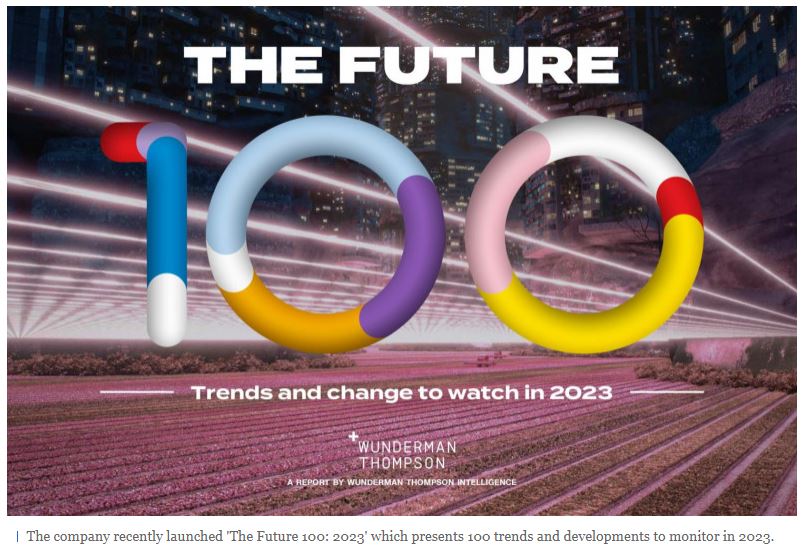Thailand: Wunderman lists key consumer trends
The metaverse, climate, inclusivity, commerce and health consciousness are the five major consumer trends to watch this year, says Wunderman Thompson Thailand, a marketing communications agency.
“Despite some continued economic difficulties, Thais already have a sense of renewed hope with key improvements in the tourism sector to fuel the economy,” said Maureen Tan, chief executive of Wunderman Thompson Thailand.
The company recently launched “The Future 100: 2023” report, which offers the most compelling trends for the year. The report can help marketers plan ahead and be more attuned to consumer trends, Ms Tan said.
She highlighted the five key consumer trends in Thailand this year.
The first lies in the embracement of the metaverse, with many large corporations investing in the metaverse, Ms Tan said.
“As we know, the future for brands is to be more connected and create a more authentic, one-to-one relationship with customers through immersive, engaging and interactive experiences,” she said.
Ms Tan said brands globally are leveraging non-fungible tokens (NFTs) to unlock consumer loyalty for the next era of metaverse engagement, offering consumers exclusive access to products and services, and exclusive access to brand experiences.
Virtual ambassadors could be a trend in the metaverse realm while companies are expected to take advantage of flexibility, speed and international yield in the metaverse to support social causes with ease, harnessing the power to turn the metaverse into a force for social good, she said.
The second trend involves concern and passion about climate change, particularly among Gen Z.
“With the recent PM2.5 situation in Thailand, not only the youth but the private sector are calling for longer term sustainable and meaningful actions to combat environmental and air quality changes,” Ms Tan said.
The third trend is related to inclusivity.
In Thailand, 3% of the population, more than 2 million people, have a registered disability card, she said.
Brands can tap into the opportunity that inclusive design brings and create better, more accessible products for all, she said.
Brands should consider inclusive designs which have the potential to be useful to both disabled and non-disabled people, said Ms Tan.
Brands can explore the use of voice recognition and speech-to-text technologies to make physical and online retail inclusive for all, she noted.
The fourth pertains to commerce perspectives as 80% of Thai consumers have fully embraced online shopping.
Co-creative commerce could be underscored as users are enabled to co-create brands’ virtual products and storefronts.
Shoppers, meanwhile, will be supported with the new shopping format of “click and collect”, allowing a digital ordering experience that entails an in-store physical presence.
In addition, as consumers become more cautious in their spending due to the rising cost of living, brands can show their community values and drive long-term loyalty through commerce, Ms Tan said.
The final trend involves health consciousness among people in the wake of the pandemic. Brands can clearly be part of this trend by being advocating better health and well-being, she said.
A better work-life balance would be underscored, said Ms Tan.
“As many private companies in Thailand allow employees to work from home a couple of days a week, nonlinear work is here to stay and employers and employees are both getting used to it, drawing on new tech platforms and apps to overcome the downsides while enhancing the benefits,” she added.
Source: https://www.bangkokpost.com/business/2503339/wunderman-lists-key-consumer-trends


 English
English




